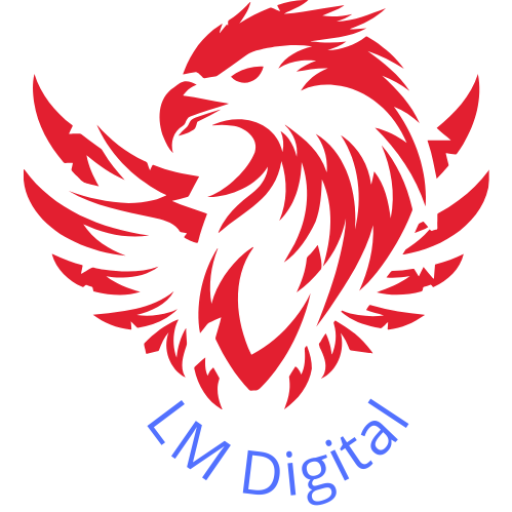Imagine being able to create high-quality blog posts, social media updates, and even entire books in just minutes. Does that sound like science fiction? In reality, AI content generation makes this possible right now. But what exactly is AI content generation, and how does it work? In this post, we will break down the technology behind AI writing and show you how to use it to enhance your content strategy. Let’s explore!
What is AI Content Generation?

At its core, AI-based content generation heavily relies on two key technologies: machine learning and natural language processing (NLP). To clarify, here’s how the process works:
First, you provide a prompt or idea to the AI tool. Then, the AI analyzes vast datasets it has been trained on, such as books, articles, and other written content. Afterward, it generates content that aligns with your request. Moreover, the more diverse the training data, the better the AI mimics human-like writing.
Generally, the process involves three steps: first, you input a prompt; next, the AI creates content; and finally, you refine it to match your desired tone and style seamlessly.
How Does it Work?

At its core, AI-based content generation relies heavily on two key technologies: machine learning and natural language processing (NLP). To break it down, here’s how it works:
First, you provide a prompt or idea to the AI tool. Next, the AI processes this input by analyzing vast datasets it has been trained on, such as books, articles, and other written content. Subsequently, it generates content tailored to your request. The more diverse the training data, the better the AI can mimic human-like writing.
The process typically follows these steps: after inputting your prompt, the AI creates content. Then, you refine it to match your tone and style seamlessly.
To know more about how it works, Click here
Utilizing AI content generators offers several advantages, which include:

Limitations and Considerations of AI Content Generating

AI content generation offers many benefits, but it also comes with challenges. For instance, AI-generated content may lack creativity or the personal touch of human writing. Moreover, it often struggles with complex topics requiring deep understanding. Therefore, it’s essential to view AI as a tool to support human writers, not replace them. While AI accelerates content production, human oversight ensures quality, originality, and accuracy, effectively bridging gaps.
Common Applications of AI Content Generation
AI content generators are significantly transforming various industries. For example, in 2024, a marketing agency reported a remarkable 40% boost in productivity after adopting AI tools for ad copy creation. Moreover, these tools are streamlining workflows, improving efficiency, and driving innovation across sectors. Here are some of the most important common applications:
AI tools can generate comprehensive articles on a variety of topics, including technology and lifestyle, often with SEO optimization in mind. For this purpose, we recommend StoryChief. Users appreciate StoryChief for its effectiveness, with 92% of reviewers rating it as “very effective” for multi-channel publishing. Additionally, 89% commend its collaborative features, which enhance team productivity.
AI tools are excellent for creating engaging captions, hashtags, and post ideas for platforms like Instagram, Twitter, and LinkedIn. For instance, if you seek these features, Vista Social is a top-rated option. Additionally, 91% of users commend its scheduling tools, while 88% praise its AI capabilities for effectively boosting engagement.
. Marketing and Advertising Copy
AI can create compelling ad copy, email subject lines, and promotional messages. We recommend Ocoya, a versatile and user-friendly tool perfect for marketers looking to boost creativity and simplify management, all in one platform.
E-commerce businesses increasingly rely on AI to create compelling and SEO-optimized descriptions for extensive product catalogs. For this purpose, Rytr stands out as an excellent choice. Not only is it affordable, but it is also easy to use. Moreover, it boasts a strong reputation, with a rating of 4.6/5 on Capterra and G2. Additionally, 88% of reviewers highlight its cost-effectiveness and the quality of its output.
AI content generators efficiently create high-quality visuals using advanced algorithms. We recommend Leonardo AI for its superior visuals, collaboration features, and innovative tools designed for creative professionals.
AI content generation enhances e-marketing campaigns by automating personalized messages, optimizing content for SEO, and creating engaging materials like email copy, ads, and social posts. Active campaign is a top choice for AI-powered email marketing due to its advanced automation capabilities and impactful results.
Choosing the Right AI Tool
Selecting the right AI tools is essential for meeting your content needs and goals. If you require written content, consider platforms that offer customization, SEO optimization, and affordability, such as Rytr. For email marketing, prioritize tools with AI-driven automation, personalization, and analytics, like ActiveCampaign. When focusing on visual content, opt for AI tools that efficiently create high-quality assets, such as Leonardo AI.
Key factors to evaluate include user-friendliness, integration capabilities, pricing, and customer reviews. Ensure that the tool you choose offers scalability and flexibility to adapt to your evolving needs. The right AI tool will streamline workflows, enhance productivity, and help ensure your content resonates with your audience.
FAQs
1. What is AI content generation?
AI content generation uses artificial intelligence to create text, images, or videos. It relies on machine learning (ML) and natural language processing (NLP) to produce human-like content, such as blog posts, emails, or social media captions.
2. Can AI-generated content replace human writers?
No, AI is best used as an assistant, not a replacement. While it creates drafts quickly, human oversight ensures creativity, emotional nuance, and factual accuracy. The ideal approach blends AI efficiency with human creativity.
3. Is AI-generated content good for SEO?
Yes, AI tools can create SEO-friendly content by incorporating keywords and optimizing readability. However, for top rankings, human editing is essential to ensure originality and avoid duplication issues.
4. What types of content can AI generate?
AI can produce blog posts, social media captions, product descriptions, email campaigns, and visual assets. Tools like Rytr, ActiveCampaign, and Leonardo AI cater to different content needs.

